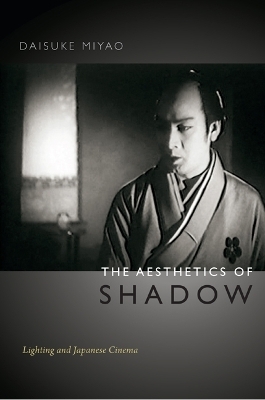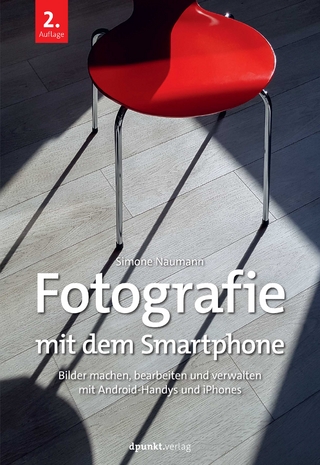
The Aesthetics of Shadow
Lighting and Japanese Cinema
Seiten
2013
Duke University Press (Verlag)
978-0-8223-5407-9 (ISBN)
Duke University Press (Verlag)
978-0-8223-5407-9 (ISBN)
By exploring the "aesthetics of shadow" in Japanese cinema in the first half of the twentieth century and treating cinematographers and lighting designers as essential collaborators in moviemaking, Daisuke Miyao reinterprets Japanese film history.
In this revealing study, Daisuke Miyao explores "the aesthetics of shadow" in Japanese cinema in the first half of the twentieth century. This term, coined by the production designer Yoshino Nobutaka, refers to the perception that shadows add depth and mystery. Miyao analyzes how this notion became naturalized as the representation of beauty in Japanese films, situating Japanese cinema within transnational film history. He examines the significant roles lighting played in distinguishing the styles of Japanese film from American and European film and the ways that lighting facilitated the formulation of a coherent new Japanese cultural tradition. Miyao discusses the influences of Hollywood and German cinema alongside Japanese Kabuki theater lighting traditions and the emergence of neon commercial lighting during this period. He argues that lighting technology in cinema had been structured by the conflicts of modernity in Japan, including capitalist transitions in the film industry, the articulation of Japanese cultural and national identity, and increased subjectivity for individuals. By focusing on the understudied element of film lighting and treating cinematographers and lighting designers as essential collaborators in moviemaking, Miyao offers a rereading of Japanese film history.
In this revealing study, Daisuke Miyao explores "the aesthetics of shadow" in Japanese cinema in the first half of the twentieth century. This term, coined by the production designer Yoshino Nobutaka, refers to the perception that shadows add depth and mystery. Miyao analyzes how this notion became naturalized as the representation of beauty in Japanese films, situating Japanese cinema within transnational film history. He examines the significant roles lighting played in distinguishing the styles of Japanese film from American and European film and the ways that lighting facilitated the formulation of a coherent new Japanese cultural tradition. Miyao discusses the influences of Hollywood and German cinema alongside Japanese Kabuki theater lighting traditions and the emergence of neon commercial lighting during this period. He argues that lighting technology in cinema had been structured by the conflicts of modernity in Japan, including capitalist transitions in the film industry, the articulation of Japanese cultural and national identity, and increased subjectivity for individuals. By focusing on the understudied element of film lighting and treating cinematographers and lighting designers as essential collaborators in moviemaking, Miyao offers a rereading of Japanese film history.
Daisuke Miyao is Associate Professor of Japanese Film/Cinema Studies at the University of Oregon. He is the author of Sessue Hayakawa: Silent Cinema and Transnational Stardom, also published by Duke University Press.
Acknowledgments ix
Introduction. What is the Aesthetics of Shadow? 1
1. Lighting and Capitalist-Industrial Modernity: Shochiku and Hollywood 15
2. Flashes of the Sword and the Star: Shochiku and Jidaigeki 67
3. Street Films: Shochiku and Germany 119
4. The Aesthetics of Shadow: Shochiku, Tohu, and Japan 173
Conclusion. The Cinematography of Miyagawa Kazuo 255
Notes 283
Bibliography 329
Index 365
| Zusatzinfo | 64 illustrations |
|---|---|
| Verlagsort | North Carolina |
| Sprache | englisch |
| Gewicht | 717 g |
| Themenwelt | Kunst / Musik / Theater ► Film / TV |
| Kunst / Musik / Theater ► Fotokunst | |
| Sachbuch/Ratgeber ► Freizeit / Hobby ► Fotografieren / Filmen | |
| Geisteswissenschaften ► Geschichte ► Regional- / Ländergeschichte | |
| ISBN-10 | 0-8223-5407-1 / 0822354071 |
| ISBN-13 | 978-0-8223-5407-9 / 9780822354079 |
| Zustand | Neuware |
| Informationen gemäß Produktsicherheitsverordnung (GPSR) | |
| Haben Sie eine Frage zum Produkt? |
Mehr entdecken
aus dem Bereich
aus dem Bereich
Bilder machen, bearbeiten und verwalten mit Android-Handys und …
Buch | Softcover (2023)
dpunkt (Verlag)
CHF 38,90


